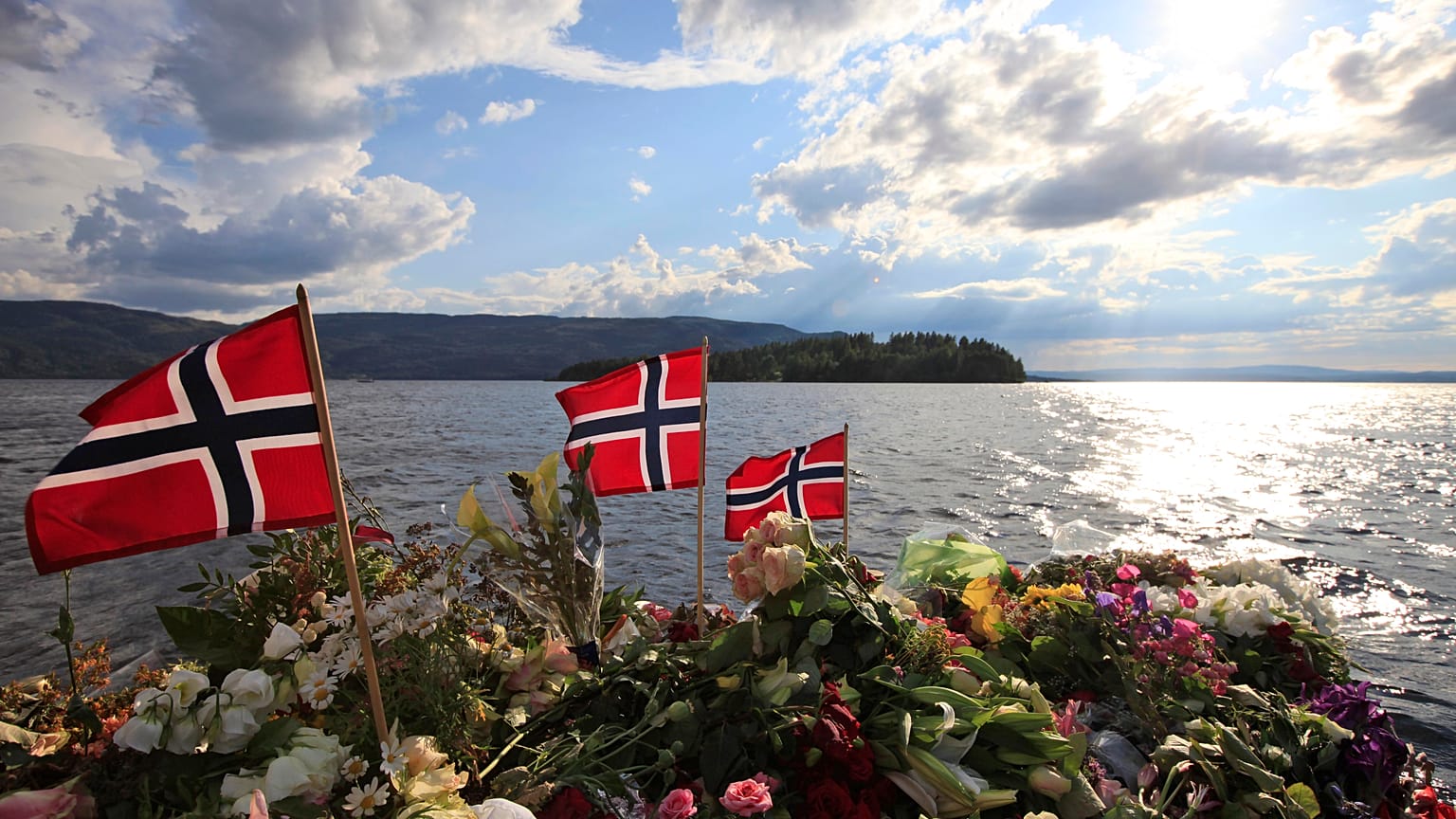Far-right extremist Anders Behring Breivik killed 69 people on the island.
A memorial to the victims of the 2011 Norway terror attacks will be built despite local concerns, a court has ruled.
 ADVERTISEMENT
ADVERTISEMENT
 ADVERTISEMENT
ADVERTISEMENT
The Norwegian justice system has dismissed objections from residents of the island of Utøya who opposed the construction of a memorial.
Sixty-nine people were killed on the island by far-right extremist Anders Behring Breivik, while eight others died in an earlier bombing near government offices in Oslo.
Many of those killed on Utøya were teenagers attending a camp organised by the youth league (AUF) of the country's Labour Party.
After lengthy discussions and the failure of an initial project, authorities decided to erect a memorial to the victims of the attacks.
The proposal featured 77 bronze columns at Utøyakaia ("Utoya's pier") in an arch formation on the bank facing the island, from where the ferry departs.
But 16 local residents, some of whom had taken part in the rescue operation, had filed lawsuits against the state and AUF, demanding that the memorial be relocated. Complainants said the monument would perpetuate the trauma of the massacre.
"The plaintiffs are clearly right to feel that they do not deserve to bear the burden of having a national memorial in their neighbourhood," the Ringerike court said in the judgment.
"However, this is not determinative," the judge added, "the considerations which plead in favour of the creation of a national memorial have more weight than the negative effects of such a memorial on the plaintiffs".
The memorial is already under construction and is expected to be ready for the tenth anniversary of the attacks on 22 July.
In response to the decision by the court, the AUF has said they were "satisfied and relieved" that a memorial would be built.
"A national memorial on Utøyakaia means a great deal to the relatives of the victims and the survivors", said secretary-general, Sindre Lysø.
But a spokesperson for local residents said the community was "shocked and infinitely disappointed" by the judgment and reiterated fears that the memorial will add to local trauma.
"The moral is that if you find yourself in an attack or in a situation with potential national and political interests, it is in your interest to turn your heels," said Anne-Gry Ruud.
Residents who rescued survivors of the massacre from the water were awarded medals and met Norway's King Harald, but some say the government is not taking their feelings into account.
"We are trying to move on," said one local resident, Terje Lien, "but every time we look in that direction, we will be haunted by these memories".
The planned memorial site for Utøya was moved from its original location of Sørbråten four years ago, after strong opposition from local residents.
The project for the memorial was commissioned by the Ministry of Local Government and Modernisation, in collaboration with AUF.
"We have had a long and inclusive process where we have tried to pay as much attention as possible to neighbours and others affected," stated minister Nikolai Astrup.
Complainants have one month to appeal the Ringerike court's verdict.














